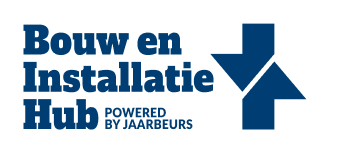Following the offering of the final report of the research 'AI, robotization and industrialization: the tech sector in 2030' at Digibouw in Jaarbeurs experts discussed digitalization in construction and engineering. The trend was clear. We have a good starting position in the Netherlands because we are extensively digitized. But we must not rest on our laurels.
Literally in the background of the conversation were the 21 policies of the Digital Built Environment 2027 Administrative Agreement that was signed in October during D-Day was signed by 39 parties. Doekle Terpstra, chairman of Techniek Nederland, assumes that this document sets the conditions. But parties must actually start delivering from now on, he stressed. 'In a conditional sense everything is ready, now we have to fully focus on its implementation.' And he also plans to press for that. 'We are now also legitimized to start calling everyone in January to ask where the butter to the fish stays.'
Freely available
An important point of the administrative agreement, according to William van Niekerk of TKI Bouw en Techniek, is that data from various partners and projects will become public and thus will be better connected. Carla Moonen of NLingenieurs connects to this: 'It is going to ensure, for example, that all the data of a building becomes public . What installations are there, what materials are used. Now, as an owner, you often can't even access that data. The building passport will lead to much more efficiency in renovations, for example.' Another example she gives is the data on highways and engineering structures. 'The information on RWS assets is now stored very fragmented. With this management agreement in hand, RWS can start requiring contractors to make that data available in a transparent way.'
Open standards
For this exchange, however, it is essential to use open standards, says Carlita Vos of BuildingSmart. 'People need to understand each other well, but computers even more so. And we are all project people in construction, but we need to start reusing that across projects.' All members of the panel completely agree with her, each in their own way emphasizing the importance of open standards. A country like the Netherlands is too small to keep things closed. "We have to connect to the European playing field," says Leontien de Waal of ABN AMRO. Moonen goes even further. 'Our designs go all over the world, that requires open international standards.'
For Doekle Terpstra, open standards are a no-brainer. "Sometimes it goes against vested interests, but we have to commit to it! He also sees that the will to do so is there.
AI and robotization
Those open standards and data sharing will also help AI, because models can be fed better with all that data and therefore become more accurate. There is room for improvement in the use of AI, the panelists think. "The Netherlands is a leader in the field of productivity and that is due to the high degree of digitalization," Van Niekerk argues, "only that is now stagnating because we cannot get more broadband connections. we can increase that lead again with AI. But for that we have to embrace what's coming our way.'
'That also means digitalization must be included in training,' De Waal adds. 'Everyone is digitally proficient because everyone has a mobile phone. But that's really different from taking everyone into digital in the workplace.' And no one, as far as she is concerned, needs to fear that his or her job will be taken over by AI. 'Your job won't be taken over by AI, it will be taken over by another employee who does use AI.'
AI and robotization are essential for the sector because of the labor shortage. But certainly as far as robotization is concerned, there is still room for improvement, because with it we are not even in the top 10. 'We have too few people in the Netherlands, and there is little chance of many people joining the construction industry,' says Van Niekerk. 'So we don't have a shortage of people here, but mainly a shortage of robots.'






